Hearing Clinic
Our Neurology team now offers a Hearing Screening service for cats and dogs.
At Southfields, we offer the BAER (Brainstem Auditory Evoked Response) hearing test. BAER screening is recommended for dog and cat breeds on screening programmes for congenital deafness and for individuals where hearing loss is suspected.
How do we test if your pet is deaf or has hearing loss?
The most widely used electrodiagnostic test to evaluate hearing is the brain stem auditory evoked response (BAER), also known as the brain stem auditory evoked potential (BAEP) or the auditory brain stem response (ABR).
The BAER detects electrical activity from the inner ear (the cochlea) and throughout the auditory pathways in the brain in much the same way that an electrocardiogram detects electrical activity in the heart.
A stimulus click (air-conducted) produced by a computer is directed into the ear with a foam insert earphone. The click stimulus contains most of the audible frequencies of the dog and cat. BAER is a frequency non-specific test that is more useful for detecting the presence or total absence of auditory function.
The response is collected with a special computer through small acupuncture-like subdermal needle electrodes: one is placed in front of the ear, one is placed at the top of the head, and a ground electrode is placed either between and behind the eyes or on the neck. The placement of the electrodes is completely pain-free for the patients.
FAQ's about BAER screening
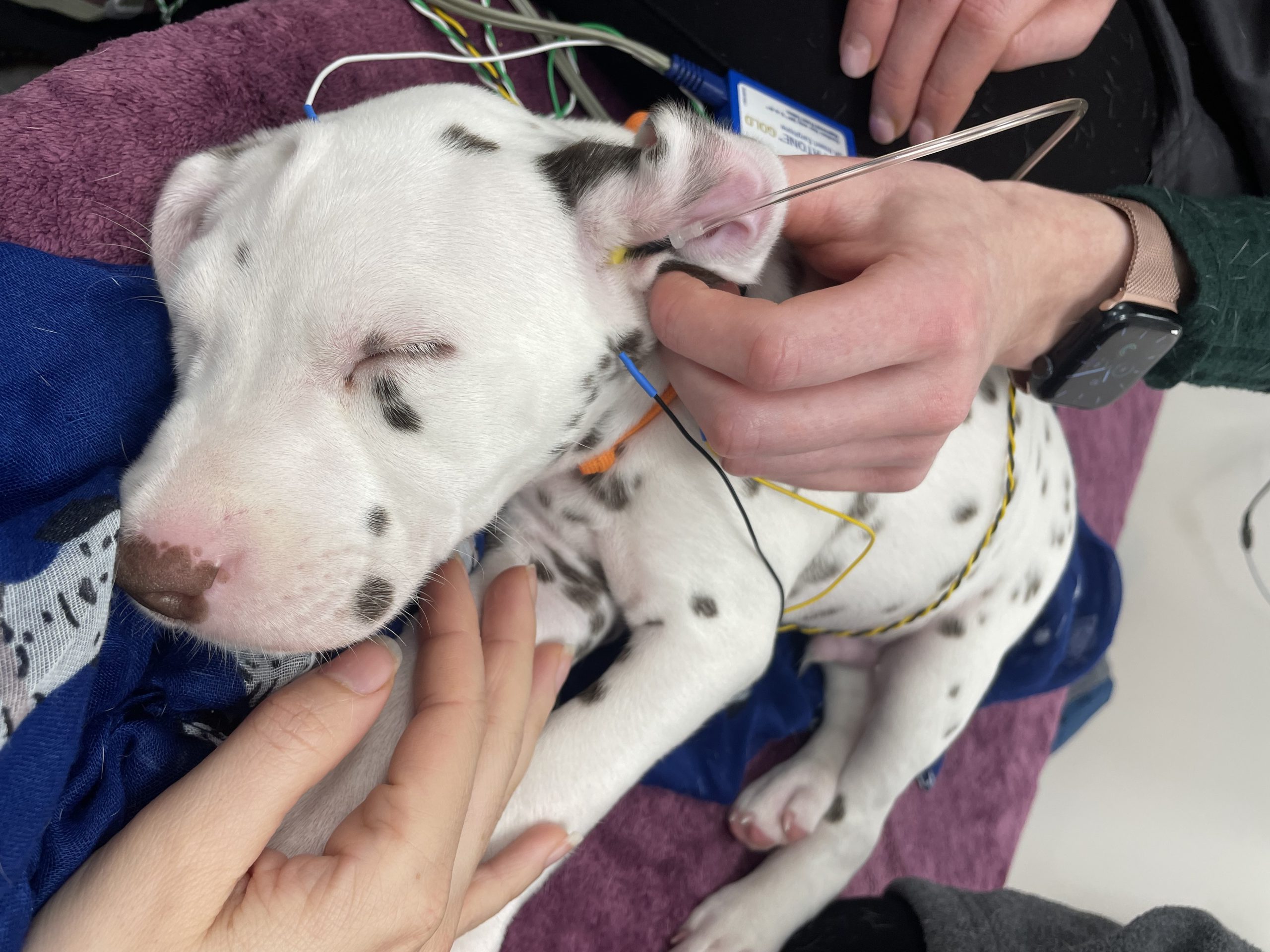
What is BAER Hearing Testing?
Sometimes puppies and kittens are born with defects that occur in the neural pathways between the ear and the brain. If those defects are present the puppy or kitten might be deaf. Unfortunately, you cannot simply tell from their behaviour whether they are deaf or not. The most common cause of deafness in puppies and kittens is a form of hereditary deafness, especially congenital hereditary deafness.
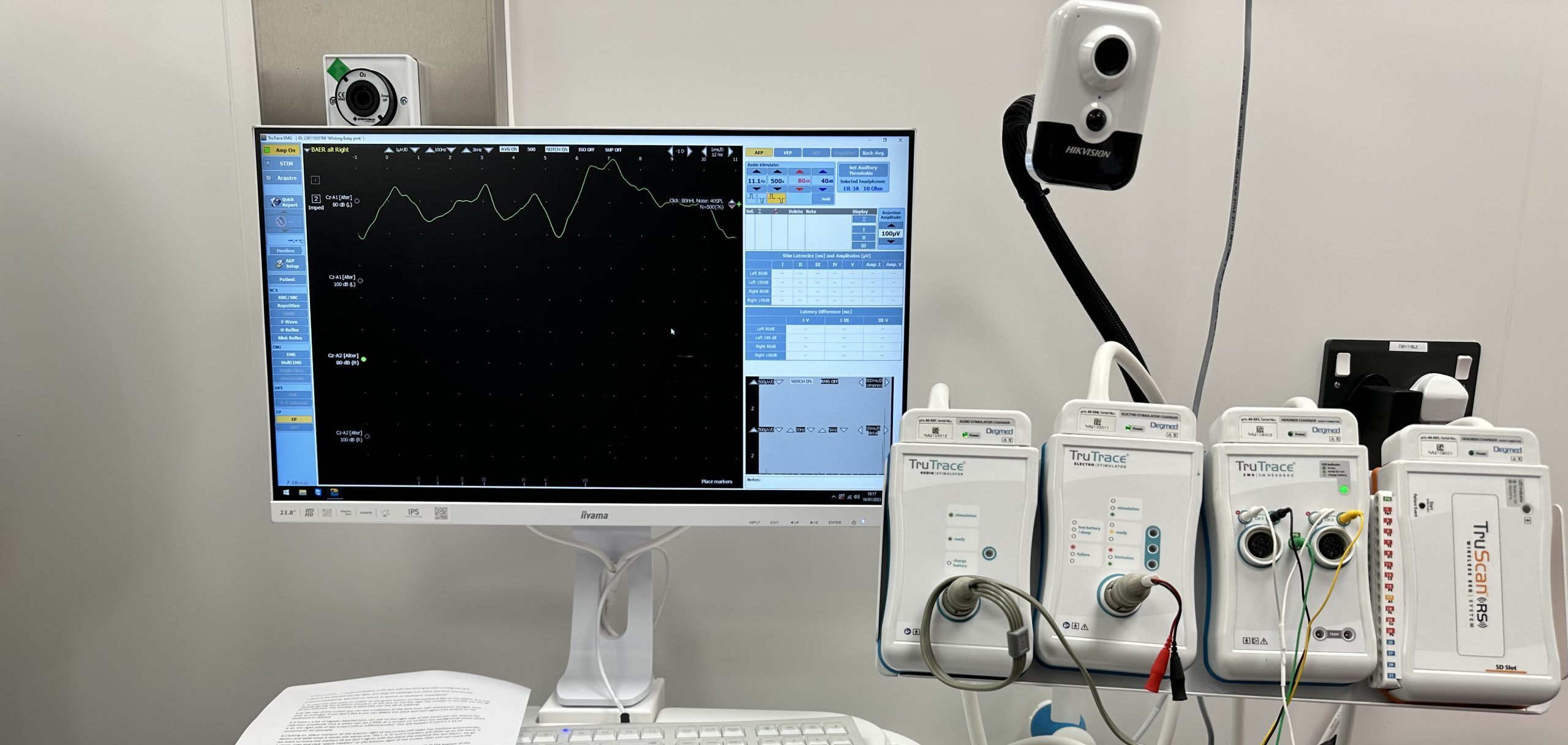
How long will the BAER test take?
Each ear is tested individually and the BAER test is usually completed in 10-15 minutes.

What do I need to do before my appointment?
You will need to make sure that your pet is Kennel Club registered and has a microchip, as you will be required to bring the relevant paperwork for both along to your appointment.

Will my pet need medication for the BAER test?
Sedation or anaesthesia is unnecessary – gentle patient handling and affection are usually enough to keep the patient still for the completion of the exam.
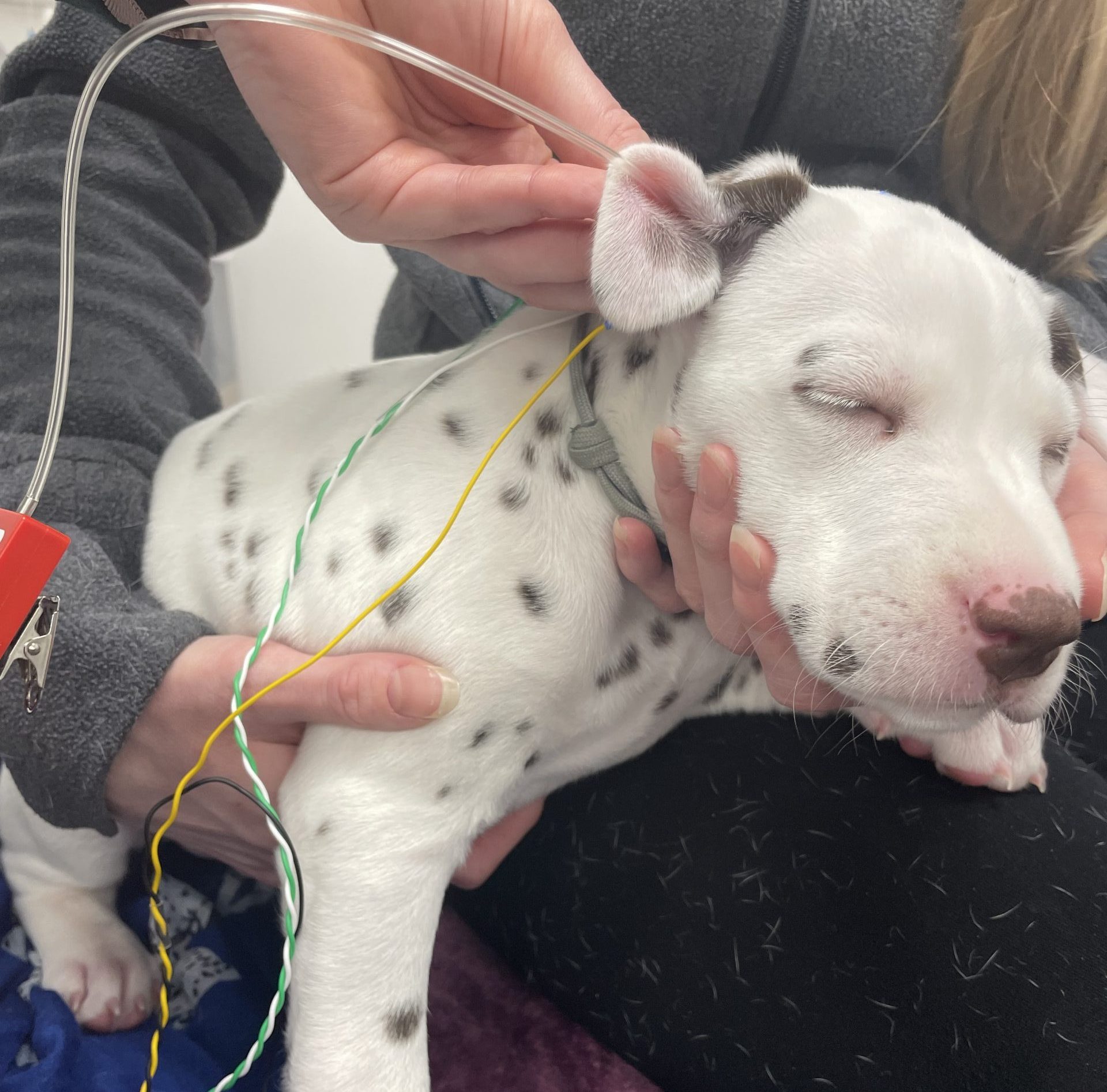
How old should my pet be?
It is recommended that BAER testing for congenital deafness is carried out at around 5-6 weeks of age, though they can be tested at any age after that.
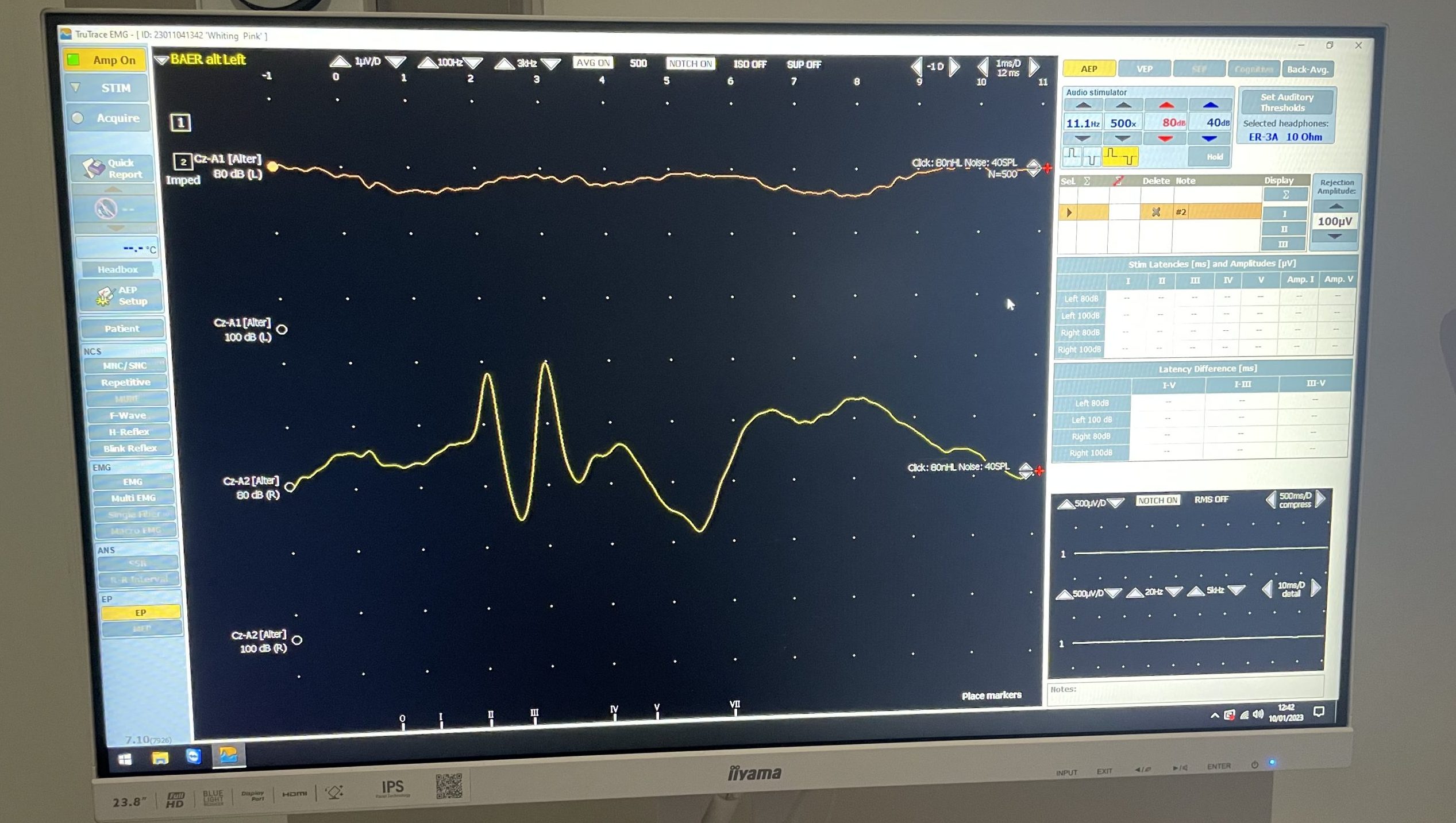
What if my pet tests negative?
If a puppy tests negative in one or both ears, and no signs of ear infection are noticed at the examination, unfortunately, nothing can be done to regain hearing.
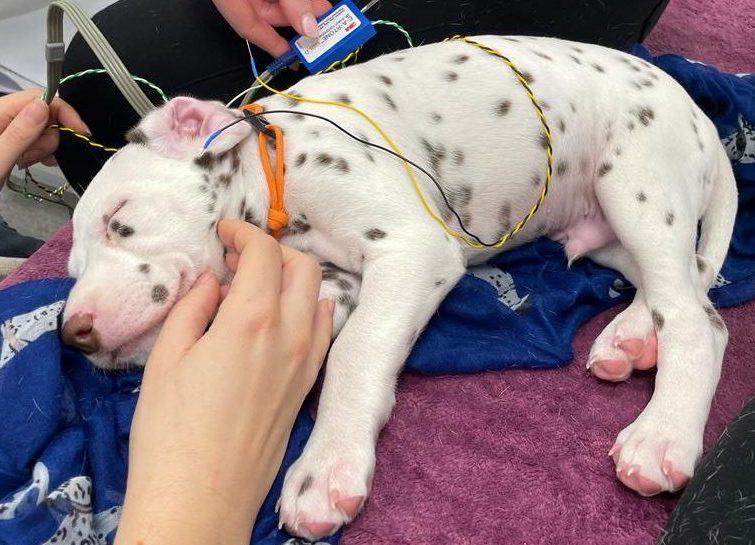
Which breeds are more likely to be deaf?
Congenital deafness is recognised in many dog and cat breeds, this is more common in predominantly white-coated breeds such as Dalmatians, English Bull Terriers, English setters, Border Collies, Australian Shepherds and White Boxers.

How can deafness affect breeding?
It is advised not to breed unilateral or bilaterally deaf animals as this is a congenital condition. Living with a deaf animal can be problematic, as owners will need help to adapt the way they communicate with their pets.
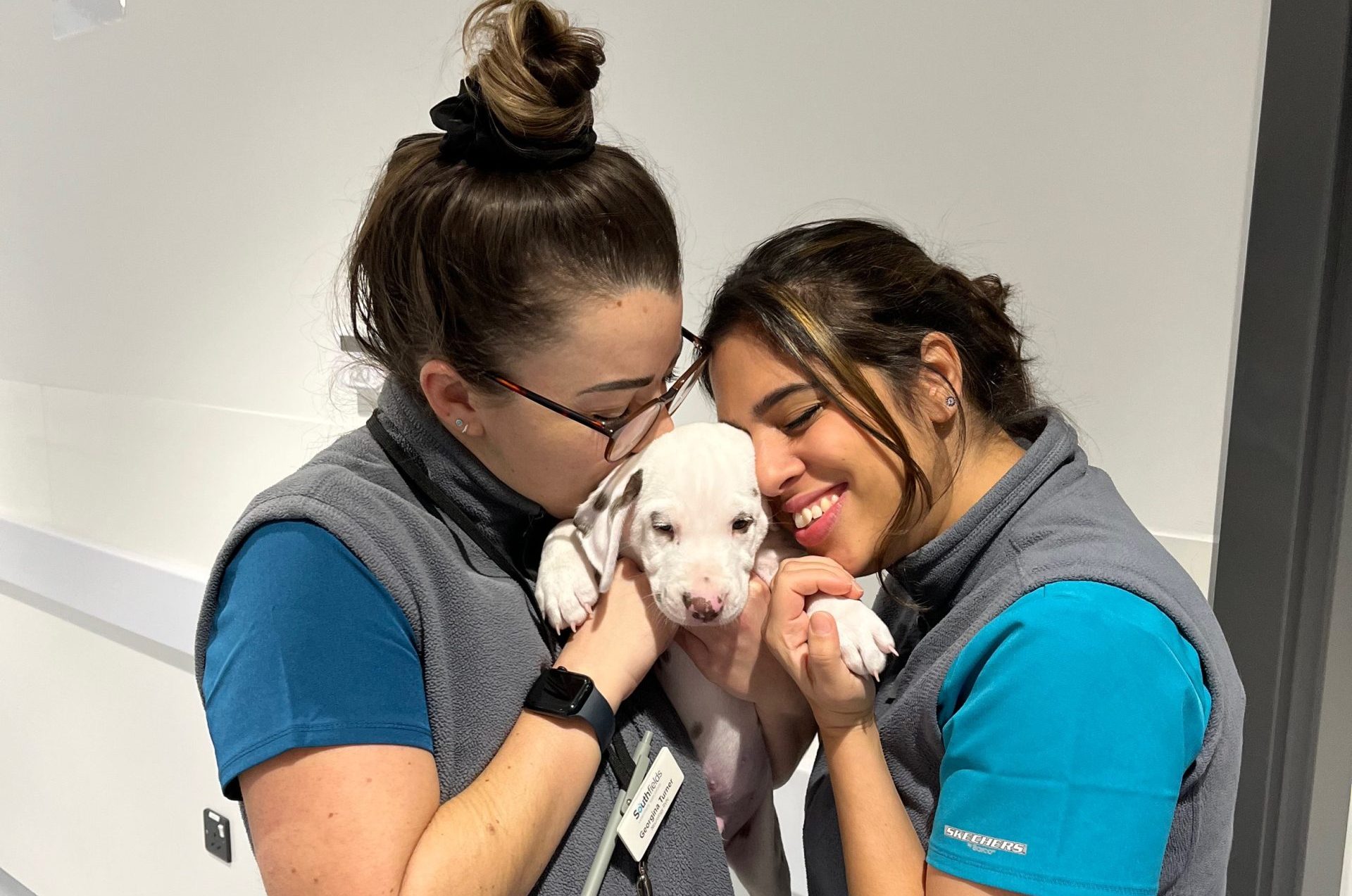
How can I find out more information?
For more information and to book your pet in for a hearing test at Southfields contact - [email protected]
Our Hearing Clinic Team
We are passionate about providing the best possible care to our patients and their owners. Our Specialist-led Neurology team is supported by dedicated Residents, Interns, Nurses and Patient Care Assistants all with experience in providing attentive care for patients visiting the Hearing Clinic.
Lovely new pet hospital. Only opened in September. Staff appear to be very caring and explain what they will do to your pet.





